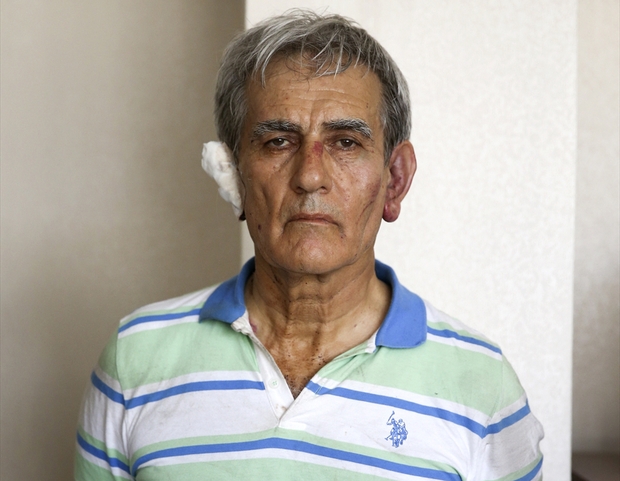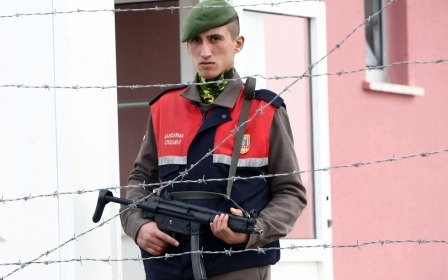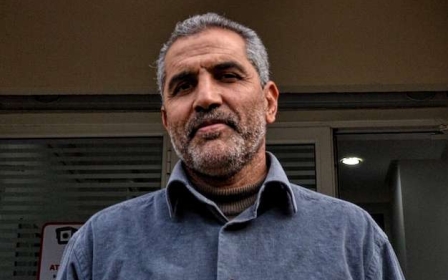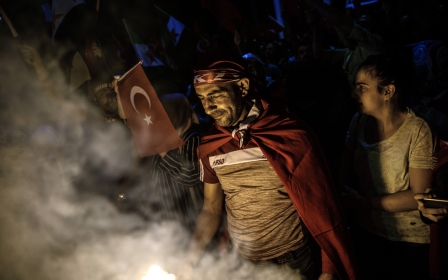Turkey coup bid: UN says no 'systematic' torture of suspects
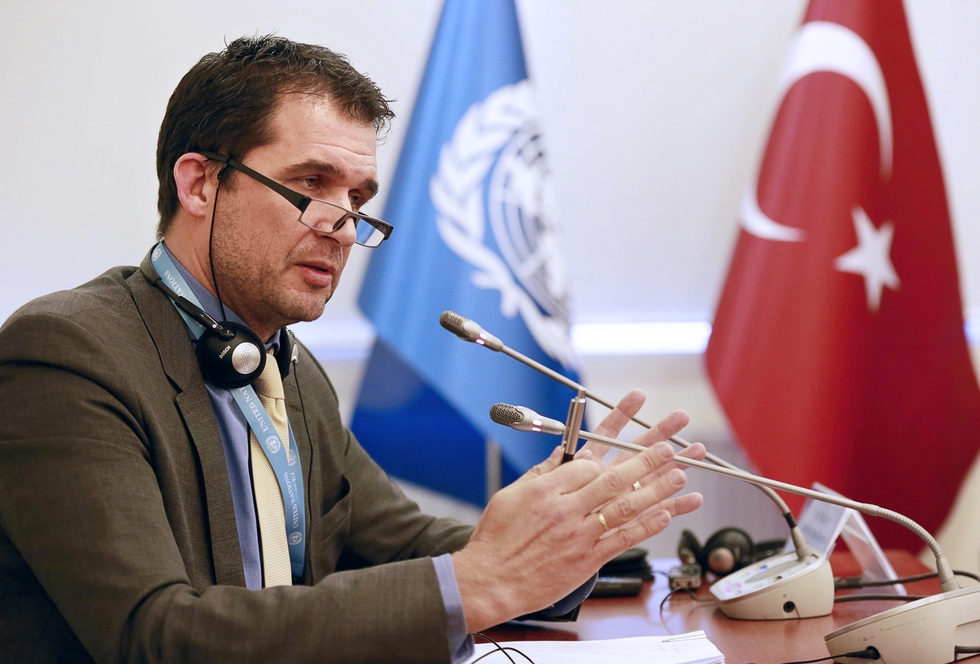
ISTANBUL, Turkey – The Turkish government was largely exonerated of claims that torture was rife in Turkish prisons after a failed July coup attempt, after a week-long inspection tour by a United Nations expert.
Nils Melzer, the UN special rapporteur on torture, said he hadn't come across any signs of systematic torture in Turkish prisons but had heard testimonies from people about ill-treatment during the arrest process and while being held in unofficial temporary holding centres.
He also said Turkish officials expressed full commitment to a "zero tolerance" policy on torture but that they needed to do more to ensure the policy was implemented in full in practice.
'After [an] initial phase marked by arbitrariness, the ill-treatment appears to have ceased'
- Nils Melzer, UN special rapporteur on torture
"After [an] initial phase marked by arbitrariness, the ill-treatment appears to have ceased. Apart from occasional verbal threats, my team received no allegations and collected no evidence of currently ongoing torture or ill-treatment with respect to those inmates, male or female, who were arrested for reasons related to the attempted coup," a statement by Melzer read.
"Testimonies received from inmates and their lawyers suggest that, in the days and weeks following the failed coup, torture and other forms of ill-treatment were widespread, particularly at the time of the arrest by police and gendarmerie officials or military forces and subsequent detention in police or gendarmerie lock-ups as well as in unofficial detention locations," said Melzer.
Ankara crackdown: International concern
Turkish authorities launched a crackdown unprecedented in size and scale against followers and supporters of Fethullah Gulen after the failed 15 July coup attempt, which cost 246 lives.
Gulen, a US-based Turkish preacher, and his followers in the Hizmet (service) movement are accused of seeking to topple the government by gradually infiltrating various layers of the state bureaucracy over the past four decades.
The government crackdown, which began after a state of emergency was declared allowing the government to rule by decree and bypass parliament, has resulted in 39,274 arrests, more than 100,000 suspensions or dismissals from work, the closure of hundreds of media outlets and the confiscation of more than 550 businesses.
The scale and speed of the crackdown led to both domestic and international concerns about adhering to the rule of law and potential violations of basic human rights.
The appearance of images showing severely beaten and bruised detainees in the days after the coup attempt also led to concerns that officials had given a green light to ill-treat suspected coup plotters.
International human rights watchdogs Amnesty International and Human Rights Watch both issued reports in the months after the botched coup attempt, citing widespread ill-treatment, including cases of rape, and a general deterioration in the rule of law.
Turkish officials slammed those reports, calling them biased and false. Melzer's report will be much more palatable to Turkish authorities but also contains warnings.
He said the government's sweeping post-coup security measures had created a climate of intimidation, which prevented victims and other representatives from reporting incidents of ill-treatment.
“As a result, allegations of torture and other forms of ill-treatment related to the failed coup have not been effectively investigated,” he said.
Turkey: Report proves EU 'bias'
Mazhar Bagli, a sociologist at Konya's Karatay University and a former AKP party MP, told Middle East Eye that this report justifies Turkey's claim that it is being unfairly targeted by the West and the EU in particular based purely on false negative perceptions.
"Most of all, this report which says there is no systematic torture of coup suspects in prison shows how right Turkey is to be disappointed with the EU. The EU chose to ignore official statements in favour of terrorist propaganda based purely on their own false perceptions," said Bagli.
According to Bagli, the report has no other significance because Turkey and Turkish society have always been strongly opposed to torture.
'The EU chose to ignore official statements in favour of terrorist propaganda based purely on their own false perceptions'
- Mazhar Bagli, academic
He went on to say that the instances of ill-treatment during the arrest process also need to be investigated more closely.
"Yes, there were heightened emotions in the days after the coup attempt. But I don't think law enforcement officials were involved in these cases of ill-treatment either," he said. “Any such incidents were carried out by enraged and emotional civilians who had just undergone a traumatic experience."
Melzer, however, was critical of state of emergency measures that allow suspects to be detained for longer periods and deny them access to legal representation for long periods, saying such measures created the grounds for possible ill-treatment to take place.
"Expedient access to lawyers and judicial review and systematic monitoring by an effective National Preventive Mechanism are indispensable tools to avoid creating an environment conducive to torture and other forms of ill-treatment," he said.
Warning about PKK suspects
Melzer's statement was more pessimistic about the treatment faced by imprisoned suspects involved in the heightened conflict since July 2015 between the state and the Kurdistan Workers' Party (PKK).
'My team and I received numerous troubling testimonies of torture and other forms of ill-treatment, of both male and female inmates, suspected to be members or sympathisers of the PKK'
- Nils Melzer, UN special rapporteur on torture
"My team and I received numerous troubling testimonies of torture and other forms of ill-treatment of both male and female inmates suspected to be members or sympathisers of the PKK," he said. "Most instances of ill-treatment were reported to have been inflicted by the police or gendarmerie in connection with the arrest itself, as well as during interrogation, in most cases allegedly in order to obtain forced confessions or denunciation of others."
Melzer called on the Turkish government to do its utmost to publically announce its "zero tolerance" policy towards torture and take measures to address such incidents.
"I therefore appeal to the Turkish government to publicly reinforce its 'zero tolerance' policy on torture and, in particular, to unequivocally make clear to state officials at all levels that they are expected and, indeed, obliged to report and investigate all allegations of torture and to bring perpetrators to justice."
New MEE newsletter: Jerusalem Dispatch
Sign up to get the latest insights and analysis on Israel-Palestine, alongside Turkey Unpacked and other MEE newsletters
Middle East Eye delivers independent and unrivalled coverage and analysis of the Middle East, North Africa and beyond. To learn more about republishing this content and the associated fees, please fill out this form. More about MEE can be found here.


